
Graham Thomas Parker is an English singer-songwriter, who is best known as the lead singer of the British band Graham Parker & the Rumour.
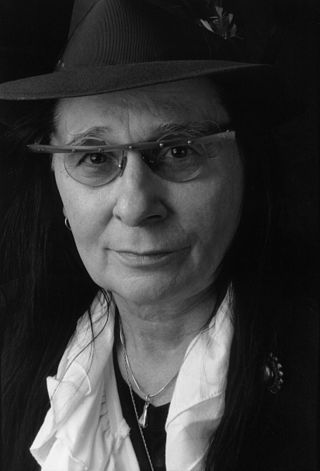
Bernard Alfred "Jack" Nitzsche was an American musician, arranger, songwriter, composer, and record producer. He came to prominence in the early 1960s as the right-hand-man of producer Phil Spector, and went on to work with the Rolling Stones, Neil Young, and others. He worked extensively in film scores for the films Performance, The Exorcist and One Flew Over the Cuckoo's Nest. In 1983, he won the Academy Award for Best Original Song for co-writing "Up Where We Belong" with Buffy Sainte-Marie.

The Mona Lisa's Sister is a 1988 album by Graham Parker. It was Parker's first album for RCA following an acrimonious split with Atlantic and the first he produced himself. The "stripped-down" sound of the album garnered critical acclaim and presaged a back-to-basics trend in rock music in the 1990s. It was re-released by Buddah Records in 1999 with a bonus track, "Ordinary Girl", the B-side to "Get Started. Start a Fire". The album debuted at #132 on Billboard 200 Album chart on 28 May 1988, peaking at #77.
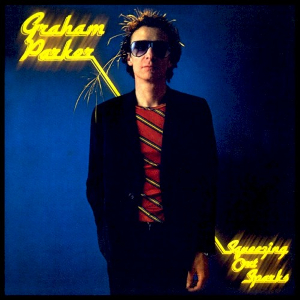
Squeezing Out Sparks is the fourth studio album by English singer-songwriter Graham Parker and his band the Rumour. The album was released in March 1979. Although the Rumour were not credited on the cover, their name was included on the album label.

The Rumour were an English rock band active in the late 1970s and early 1980s. They are best known as the backup band for Graham Parker, whose early records were credited to Graham Parker & the Rumour. However, the Rumour also recorded on their own, releasing three albums: Max (1977), Frogs, Sprouts, Clogs and Krauts (1979), and Purity of Essence (1980).
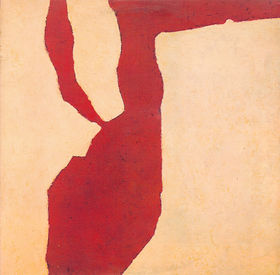
The Up Escalator is an album by Graham Parker and the Rumour, released on 23 May 1980 by Stiff Records as LP and as cassette. In the USA, the album was released by Arista. Released after Parker's successful 1979 album Squeezing Out Sparks, the album features production by Jimmy Iovine.

Steady Nerves is a 1985 album by Graham Parker and the Shot.

The Real Macaw is an album by Graham Parker, released in 1983.
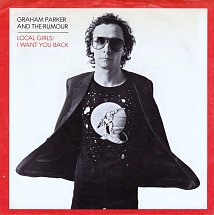
"Local Girls" is a song by British rock musician Graham Parker, recorded with his backing band the Rumour. The song was released on his 1979 album, Squeezing Out Sparks.

Another Grey Area is the first solo album by Graham Parker. It was released in 1982 on the Arista label. The album was produced by Jack Douglas and Graham Parker, and features Nicky Hopkins on acoustic piano.
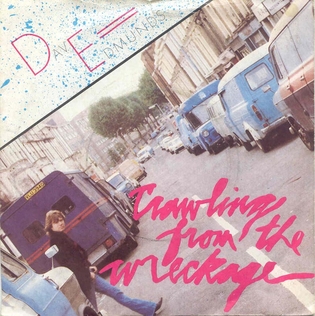
"Crawling from the Wreckage" is a new wave song written by Graham Parker and first released by Dave Edmunds in 1979. Parker, who was unsatisfied with the song, contributed the song to Edmunds, included it on his album Repeat When Necessary. Edmunds' version peaked at number 59 on the UK Singles Chart.

"Mercury Poisoning" is a song written by rock musician Graham Parker and performed by Graham Parker and the Rumour. Inspired by Parker's frustration with his record company, Mercury Records, the song was released as a promotional single by Parker's new label, Arista Records, in February 1979. Because of the song's controversial nature, it was pulled from its planned release as the B-side to Parker's 1979 single, "Protection."

"Discovering Japan" is a song by British rock musician Graham Parker, recorded with his backing band the Rumour. The song was released on his 1979 album, Squeezing Out Sparks.
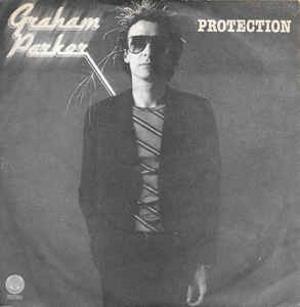
"Protection" is a song by British rock musician Graham Parker, recorded with his backing band the Rumour. The song was released on his 1979 album, Squeezing Out Sparks.
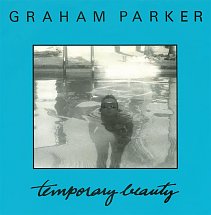
"Temporary Beauty" is a song by British rock musician Graham Parker. The song was released on his 1982 album, Another Grey Area. With lyrics described by Parker as "put-downs", "Temporary Beauty" is a rock song with vocals that Parker noted as an example of his better singing compared to previous albums.
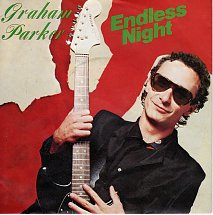
"Endless Night" is a song written by rock musician Graham Parker and performed by Graham Parker and the Rumour for their 1980 studio album The Up Escalator. Originally written for the 1980 film Cruising, "Endless Night" features lyrics about aging in rock 'n' roll. The song notably featured backing vocals from musician and Parker fan Bruce Springsteen.
"Passion Is No Ordinary Word" is a song by British rock musician Graham Parker, recorded with his backing band the Rumour. The song was released on his 1979 album, Squeezing Out Sparks. Written about faking one's emotion, the song features a stripped-down arrangement.

"Wake Up (Next to You)" is a song written by British rock musician Graham Parker and performed by Graham Parker and the Shot. Inspired by Smokey Robinson, the song was crucial in convincing Elektra Records to allow Parker and producer William Wittman to record a full album. The song is also notable for Parker's breathy singing and its lush arrangement.
"Saturday Nite Is Dead" is a song by British rock musician Graham Parker, recorded with his backing band the Rumour. The song was released on his 1979 album, Squeezing Out Sparks. Written about his experiences growing up in suburbia, the song features caustic lyrics and an angry vocal delivery.

"Stupefaction" is a song written by rock musician Graham Parker and performed by Graham Parker and the Rumour for their 1980 studio album The Up Escalator. Inspired by Parker's time spent in Los Angeles, the song features sardonic lyrics that were based on an observation by Parker and his manager in the city.


















